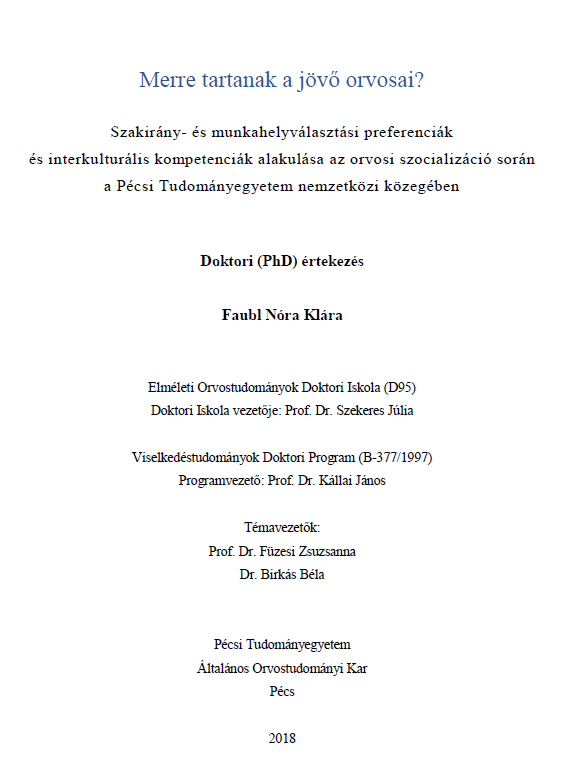Merre tartanak a jövő orvosai?
Abstract
The operability and quality of health care rely mostly on the professionals working in its branches, therefore it is crucial to gain present and future connected information about the human resources in health care. Among these, we need to mention the motivation and work plans of future doctors.
Last decades’ lack of doctors in many specialities and in many places worldwide led the attention to studies about the speciality choice of future doctors. The studies cover the motivational factors behind workplace choices because part of them have serious consequences such as the loss of attractiveness of countryside work. Current statistics, for example the number of doctors per a hundred-thousand inhabitants, the unequal share between speciality and geographical fields, or the unfavourable demographic changes, shade the situation further. The number of doctors in single specialities – also due to the aging in the medical society – decreases constantly. Beyond the impact factors of speciality popularity, also the type of workplace settlement plays a role: the popularity of medical work in the countryside is decreasing and this affects the vacancy of General Practitioners in the countryside in many countries in the world.

